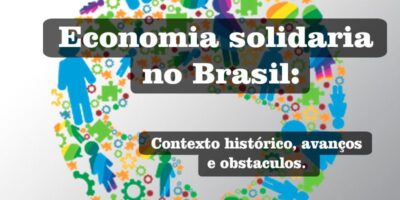COMPARISON OF THE PERFORMANCE OF SIX BRAZILIAN MUNICIPAL SOLIDARITY ECONOMY FORUMS

This work seeks to compare the performance of six Brazilian municipal Solidarity Economy forums. It consists of pioneering work, carried out in the extension course of the Integrated Multidisciplinary Center for Studies, Training and Intervention in Solidarity Economy – NuMI-EcoSol – at the Federal University of São Carlos. Its objective is to subsidize the development of already existing Brazilian municipal forums, and the creation of others that can be modeled on them. To this end, it uses the following methodologies: as an epistemological axis, the critical-dialectic method, historicizing the theme; as the logical axis of investigation, the hypothetical-deductive, starting from the main hypothesis that a national bank represents more benefits in a social and economic sense for the country than a foreign bank; as a technical axis of investigation, non-participant observational research, of bibliographic and documentary types. The Solidarity Economy is, a priori , an alternative for work, income and social inclusion, and, a posteriori , a self-managed work based on solidarity, the appreciation of human work and sustainable development capable of giving back to its members part of the dignity extracted through the marginalization and segregation caused by the sharply competitive and exclusionary capitalist productive forces of the 21st century. Brazilian municipal Solidarity Economy forums are spaces democratically organized, at the municipal level, by Solidarity Economy actors for: a) the rapprochement and integration of solidarity economic enterprises; b) the discussion, organization, formulation, implementation, monitoring and representation of this movement; b) articulation with other regional, national and international bodies.